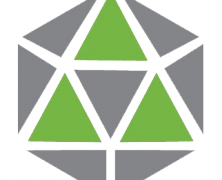Data worth hundreds of millions of Euros has been made available through a first version of the European Geological Data Infrastructure (EGDI). This will enable users to access information and data in INSPIRE compliant formats about geology and earth resources across Europe. The EGDI was launched last Tuesday 14th June at the European Geological Surveys (EGS) Secretariat in Brussels. The interest expressed by the participants and speakers, mainly composed by representatives from EU DGs, was large: Marie Donnelly, Director of Renewables, research and Innovation, Energy Efficiency, (European Commission’s DG Energy) said “The kind of information you are putting together is hugely useful for the EU”, as well as Slavko Solar, DG GROW has confirmed: “EGDI is a great step forward” supported by Chris Steenmans, Head of ICT and Data Management, European Environment Agency (EEA). Positive reactions also came from the Joint Research Centre (JRC), Constantin Ciupagea Head of Land and Raw Materials (European Commission’s DG), who highlighted: “EGDI is the big platform for EGS. Extremely happy to see EGDI go forward” as well as from Iain Shephard, Head of Maritime Policy Atlantic, outermost regions and Arctic, (European Commission’s DG for Maritime Affairs and Fisheries,) said “EGDI is a great initiative” and Gilles Ollier Head of Earth Observation (European Commission’s DG Research and Innovation) added :“EGDI has a very important role to play in the in-situ part of Copernicus and GEOSS”. Europe – as does the rest of the world – faces a growing need for access to data on nature, environment and raw materials across the borders in order to manage resources appropriately. The EGDI is a platform for geological data from the geological surveys and it gathers thousands of pan-European and national datasets covering Energy, Groundwater, Mineral Resources, Geohazards and Soil. During his...
European Geological Data Infrastructure launch event. The version 1.0 is here!
posted by EuroGeoSurveys
Interviews on the new EGS book, “Wonder Water – The value of water”
posted by EuroGeoSurveys
The latest EuroGeoSurveys publication “Wonder Water – the Value of Water” has been launched on the 15th March 2016 at 16.00 o’clock, at the Scotland House of Brussels, during the EuroGeoSurveys 40th General Meeting. The book brings you on a fantastic geological journey around Europe through mineral springs, thermal baths, SPAs, pools, etc. It lets you explore fantastic places and discover the health benefits of groundwater on which geology has a mayor impact. The launch event was attended by the Directors of the Geological Surveys of Europe, EU representatives and invited guests from America, Asia and Africa. Below you will find the interviews with Mr. Koen Verbruggen (President the EuroGeoSurveys) and Mr. Zdenek Venera (Director of the Czech Geological Survey). For more details on the event, please read the press release. ...
MICA at the UNECE Expert Group of Resource Classification (EGRC), share a common ground
posted by EuroGeoSurveys
The MICA project was presented by a poster at the 7th session of the UNECE Expert Group of Resource Classification (EGRC), held in Geneva 27-29 April 2016. The project was represented by Katalin Sári, researcher of the Geological and Geophysical Institute of Hungary (participating as a linked third party in the project). The EGRC is responsible for the promotion and further development of the United Nations Framework Classification for Fossil Energy and Mineral Reserves and Resources 2009 (UNFC-2009). The Expert Group meets once a year at the Palais des Nations in Geneva to present the latest achievements on the UNFC-2009 and its Specifications and to discuss the subsequent tasks. The sessions are attended by experts from numerous countries around the world, international organizations, non-governmental organizations and private sector. In the 7th session many European stakeholders took part such as representatives of the EC, ministries, authorities, research institutes, industry, academia etc., who are data providers and users in terms of the MICA project. The comprehensive identification of stakeholders in mineral sector, which is of central importance in the project, is properly implemented in the case of UNECE EGRC. Furthermore, this forum aims to develop a common ground, which is a key tool and goal of mineral intelligence. The experience gained at the meeting will significantly contribute to the implementation of the MICA...
European Innovation Partnership on Raw Materials – Meeting of Operational Groups
posted by EuroGeoSurveys
EUROPEAN INNOVATION PARTNSHIP ON RAW MATERIALS MEETING OF OPERATIONAL GROUPS On Thursday 14th April the European Innovation Partnership (EIP) on Raw Materials Operational Groups meeting took place at the Plaza Hotel in Brussels. During this one day-meeting, several projects and initiatives have been presented during plenary and parallel sessions, including the MICA project introduction followed by a round table debate. The Mineral Intelligence Capacity Analysis (MICA) project was introduced by Lorenz Erdmann, Coordinator at the Fraunhofer Institute for Systems and Innovation Research and leader of the MICA WP2 “Stakeholder needs”, at the Operational Group Knowledge Base. As highlighted, the projects main goal is to provide stakeholders with the best possible information, in a seamless and flexible way using an ontology-based platform European Union Raw Materials Intelligence Capacity Platform (EU-RMICP). The platform will be able to respond to the specific raw material knowledge needs of stakeholders. MICA will last 26 months involving 16 partners and 15 linked third parties (all Geological Surveys). Most importantly, MICA’s contribution was introduced to the EIP Strategic Implementation Plan: MICA will combine the available data and knowledge on raw material sources (including recycling) and make them easily accessible. Intelligence is a first requirement in order to reduce import dependency, diversify raw material sourcing, to find alternatives for (critical) raw materials and to put Europe at the forefront in the raw materials sector. Therefore MICA represents an important step to fulfil one of the Strategic Implementation Plan’s (SIP’s) targets: “European raw materials knowledge base with information, flows and dynamic modelling system for primary and secondary raw materials”. Several potential areas of cooperation between MICA and other projects (MIN-guide, MINLEX, MINATURA2020, JRC RMIS) were also presented to ensure that the projects complement one another. Questions such “Can one project be so inclusive to cover...



